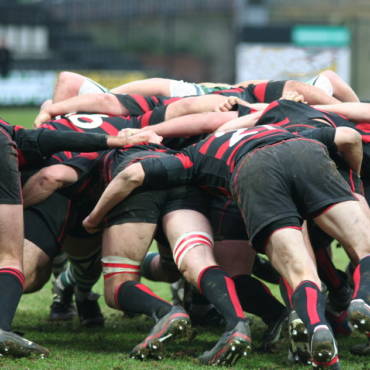Posted September 10, 2013
231
1
0
Fifty tips for parents of young athletes, to help them get the most out of their chosen sport.
- Love them unconditionally.
- Support their coach.
- Accept that they can not win every time they compete.
- Allow them to be a kid and to have fun.
- Help them to develop as a person with character and values.
- Turn off as a sporting parent. Don’t make sport the one and only topic of conversation at the dinner table, in the car, etc.
- Don’t introduce your child as “This is my son the swimmer or Rugby player” – their sport is just something they do – it does not define them.
- Don’t do everything for them. Teach them responsibility and self management.
- Reward frequently for success and effort but make them small, simple, practical, and personal things. Kids don’t need a CD or $20 just for playing sport.
- Best of all reward them with what they really love…….your time!
- Be calm, relaxed and dignified at competitions and games.
- Accept that progress in any sport takes a long time: it takes at least 7 – 10 years after maturation in most sports for any athlete to achieve their full potential.
- Believe it or not, kids can learn to pack and unpack their training bag, clean their own training and competition clothes, fill their own water bottle – teach them and encourage them to take control over their own sporting careers. A little manual work and helping out with household chores are important lessons in developing independence.
- Don’t reward champion performances with junk food!
- Skills and attitude are the important things. Don’t waste money buying kids the latest and greatest equipment and hope to buy a short cut to success.
- Encourage the same commitment and passion for school and study as you do for sport.
- Avoid relying on “sports foods” or “sports supplements” – focus on a sensible, balanced diet which includes a variety of wholesome, healthy foods.
- Allow your kids to try many sports and activities.
- Don’t specialize too early!!! There is no such thing as a champion ten year old winger or opening bowler or halfback.
- Junk food is ok occasionally. Don’t worry about it.
- Praise qualities like effort, trying hard, attempting new skills, the execution of a new skill in a game and similar values rather than winning.
- Love them unconditionally (worth repeating).
- Have your “guilt gland” removed. This will help you avoid phrases like “I’ve got better things to do with my time” and “Do you realize how much I have had to give up for you to play football”. Everyone loses when you play the guilt game.
- Encourage activities which build broad, general movement skills like running, catching, throwing, balancing, agility, balance, co-ordination, speed and rhythm. These general skills can then have a positive impact on all sports.
- Encourage the occasional “down time”. No school or sport – just time to be kids!
- Encourage relationships and friendships away from training, competition and school work – it’s all about balance.
- Help and support your child to achieve the goals they set, then take time to relax and celebrate and enjoy their achievement as a family.
- Never use training or sport as a punishment i.e. more laps / more training.
- Do a family fitness class, yoga or martial arts or another sport unrelated to their main sport. Everyone benefits.
- Car pool! Get to know the other kids and families in your child’s team then in turn you can allow your child to be more independent by doing things with other (trusted) adults.
- Attend training regularly to show you are interested in your child’s effort and the process rather than just the win / loss of the outcome.
- Help raise money for the team, club and kids: even if your own child is not involved in the target of the fund-raising.
- Tell your kids you are proud of them for being involved in a healthy activity.
- Volunteer your time to be on the committee.
- Volunteer your time to help out at training and competition but…….try not to work directly with your own child. This helps teach your kids the importance of “team” where working together and supporting each other are important attributes.
- Even if you were an athlete or a player, and even if you are a trained coach, resist the temptation to coach your own child. It rarely if ever works.
- Be aware that your child’s passion for a particular sport may change.
- Also be aware however that skills learnt in one sport can often transfer to another sport.
- Accept flat spots. Times when your child does not improve. During these times encourage participation for fun, focus on learning skills and help them develop perseverance and patience – two life skills that will help them throughout their lives.
- Believe it or not, Australian kids are unlikely to die from drinking tap water.
- Cheer for your child appropriately. Don’t embarrass yourself or them.
- Make sure each week includes some designated family time, where you do family things and talk about family issues, not about sport.
- Take a strong stand against smoking and drug use (both recreational and performance enhancing).
- Set an example with sensible, responsible alcohol use when your kids are around.
- Don’t look for short cuts like “miracle sports drinks” or “super supplements” success in sport comes from consistently practicing skills and developing an attitude where the love of sport and physical fitness are the real “magic”.
- If one of your kids is a sporting champion and the other kids in the family are not so gifted, ensure you have just as much time, energy and enthusiasm for whatever they are doing.
- Eliminate the use of the phrase “well what we did when I was playing”.
- Encourage your kids to find strong role models but try not to let this decision to be based on sporting ability only. Look for role models who consistently demonstrate integrity, humility, honesty and the ability to take responsibility for their own actions.
- Encourage them to learn the qualities of leadership and concepts like sharing, selflessness, team work and generosity – sport teaches life lessons.
- Don’t compare the achievements of your kids to any other kids – good or bad. It only creates barriers and resentments between young people and the world can do without more of that!
Wayne Goldsmith and Helen Morris



1 Comment
There is no doubt, from my situation that I have had the greatest response to your specific advice about kids in sport, the Role of Parents and things parents should do. Part 3: Role of Parents .. looking forward to it.
Comments are closed.